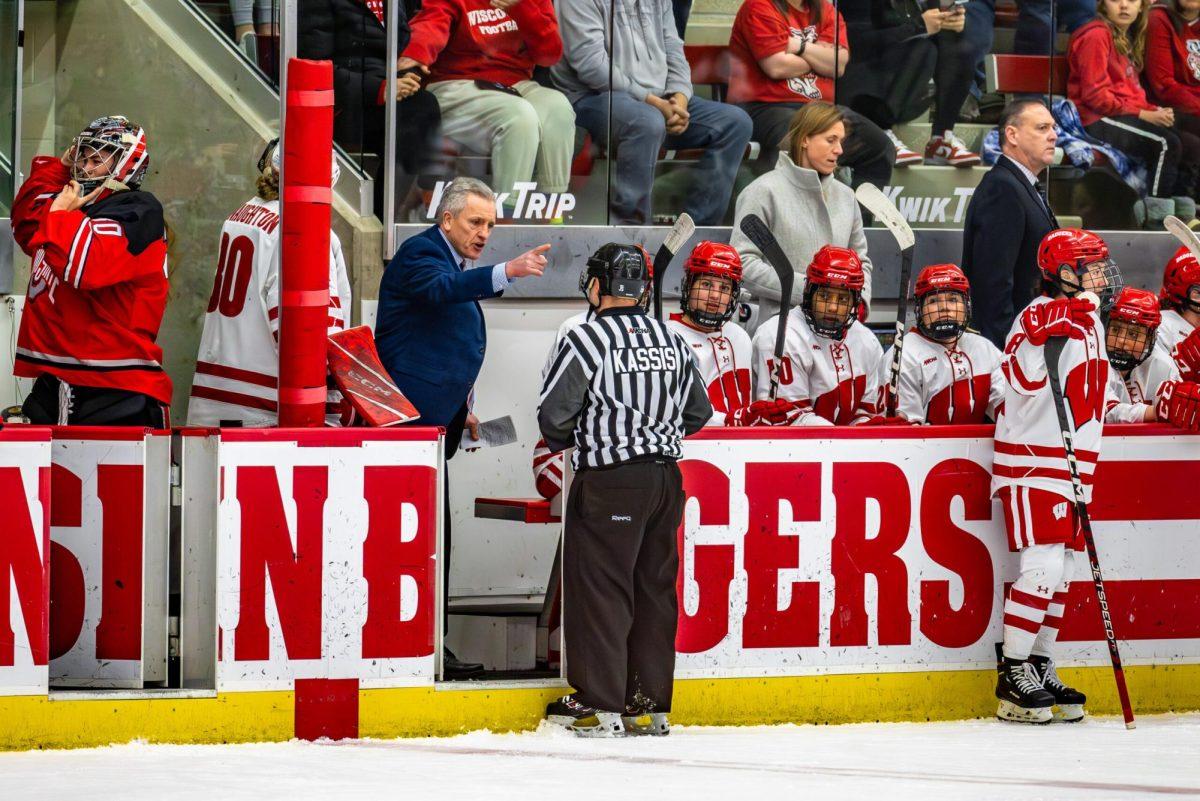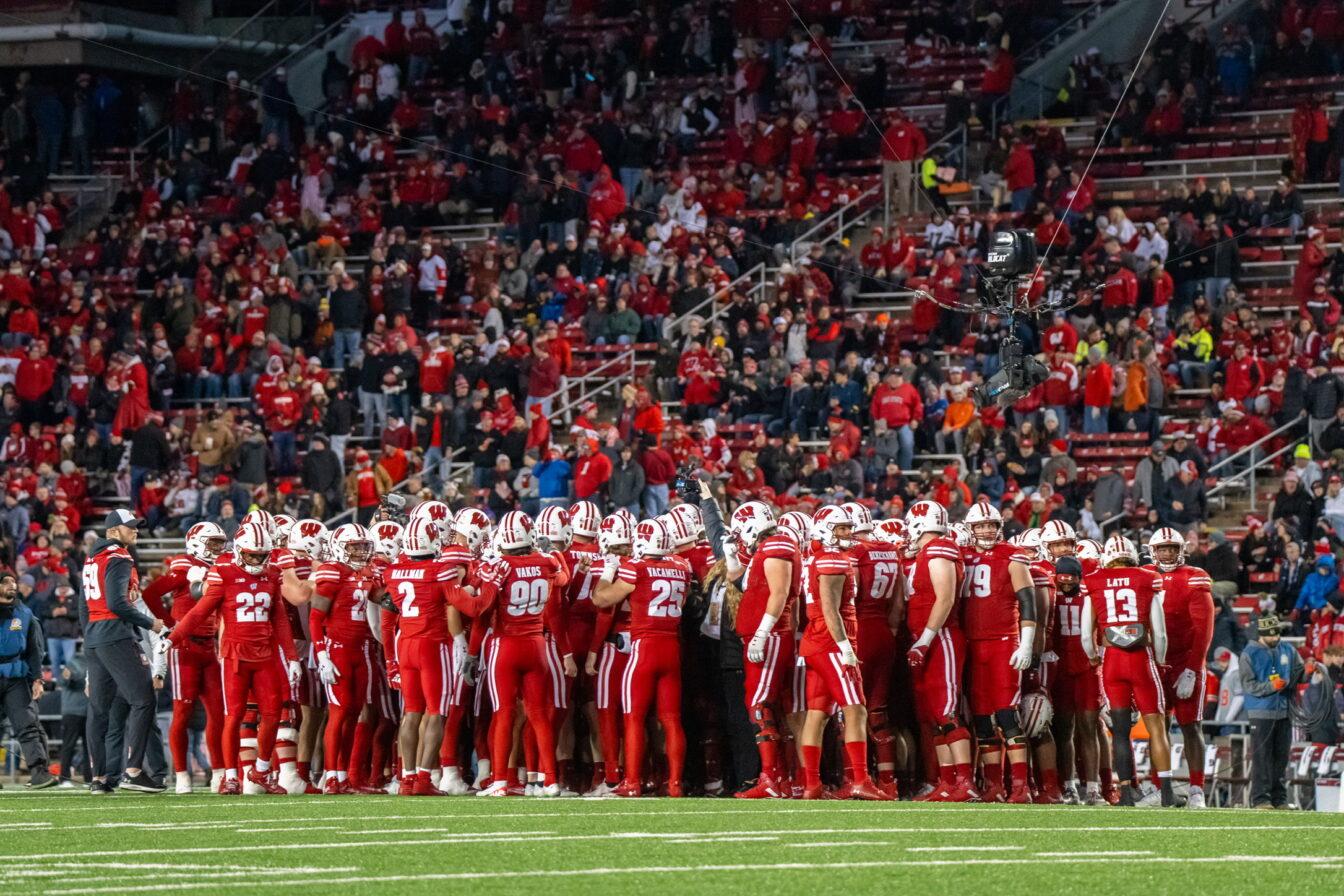When I was a kid, I wanted to be a professional athlete. Not just any athlete, but a basketball player. Think about it: playing a sport you love in front of thousands of fans. Racking up millions of dollars through either a long-term contract or endorsements — athletes, I'm told, have it made.
For some reason or another, however, sometimes something happens to these athletes along the way. Someone who once had so much potential and showed so much promise fades into a maximum-security prison or an emergency room following a drug overdose.
These are the cruel realities a few athletes face. Certainly they are probably the most extreme cases. However, many athletes boast lengthy criminal records and multiple fines. Some are able to recover; some aren't so fortunate.
For those who don't, we as a society say, "Why did they throw it all away? What right did they have to toss aside something so glorious — a dream I once had — for drugs? Or guns?" Or whatever it may be.
Pending the decision made by Gonzaga's athletic department, that's exactly what Josh Heytvelt and Theo Davis did Friday night. The two Bulldogs had in their possession marijuana and psychedelic mushrooms. Although the amount of marijuana wasn't enough for more than a misdemeanor, possession of 'shrooms is a felony in the state of Washington.
For now, the two are suspended indefinitely. Poor decision-making by the sophomore Heytvelt, one of the key contributors to the Bulldogs with averages of 15.5 points, 7.7 rebounds and 1.7 blocks, has now put Gonzaga's tournament hopes in jeopardy, and more importantly, his own dreams have been put on hold.
These two young guys made a choice worse than Grady Little's to send Pedro Martinez out for the eighth inning against the Yankees in Game 7 of the 2003 ALCS. They screwed up real bad, and now they will likely pay the price.
This is, by no means, an isolated trend. In fact, a bountiful number of athletes have taken this route.
Chicago defensive tackle Tank Johnson recently pleaded guilty to violating probation in a gun case from 2005. He was arrested in December 2006 for possessing several unregistered firearms.
After seemingly having it all himself, Baltimore Ravens running back Jamal Lewis was convicted in 2005 of using a cell phone to try and set up a drug deal just months after being drafted fifth overall in 2000. He was sentenced to four months in prison and 500 hours of community service. His road to recovery was a long one. It was not until the second half of 2006 that Lewis returned to the form that made him the NFL's single-game rushing leader earlier in his career.
Some have never recovered.
Ugueth Urbina, a World Champion with the Florida Marlins, may never pitch in baseball again for allegedly attempting to murder five workers at his ranch in Venezuela in October 2005 — with a machete, no less.
Alcoholism and weight problems shattered Vin Baker's career while cocaine and weight problems tarnished former teammate the Rain Man, Shawn Kemp's.
And don't forget Ricky Williams. He was at the top of his game, rushing for 1,853 yards and 16 touchdowns in 2002. But the victim of a social anxiety disorder decided that becoming spiritual through pot and other drugs in India was more appealing than making millions of dollars at a sport he dominated. Although he un-retired months later, Williams faced a suspension for violating the league's substance abuse policy. Prior to 2006, he violated it again and had to sit out the entire season. It remains uncertain where the former Heisman Trophy winner will end up, but his poor decisions have certainly led to wasted talent.
There have been countless more.
Of course these athletes made mistakes and of course they, for the most part, are guilty of wrongdoing. Yet I find it kind of hard to be so critical of them when you take the time to understand where they've come from. Now, if Urbina really tried to kill some of his employees, that's pretty bad. In no way am I condoning that. But I still find it tough to condemn and shame these athletes for bad decisions.
Consider the circumstances first. Many of these players come from gang-torn projects where they see more bullets than books, more drug-dealers than teachers. Few grow up in privileged environments. Put yourself in their shoes if you can. If this is the life they know, it can be extremely difficult to get away from those attitudes developed even when they're long gone from it.
Add in millions of dollars, an amount that these 19, 20 and 21-year-olds have never seen, and temptation is great. Some athletes just aren't role models. Charles Barkley even admitted to that. They have a difficult time taking care of themselves, let alone keeping an upstanding reputation.
While we cannot put what these troubled athletes have done aside or give them the impression they're above the law — Gonzaga should cut Davis and Heytvelt — we need to reach out and try to understand, try to empathize with their needs. After all, they are human. They too suffer and bleed and can be victimized by mental disorders, temptations or addictions.
We all are on a level playing field in that respect. So even though I don't have it made, I can relate to someone who does.
Kevin Hagstrom is double-majoring in economics and journalism. If you think he's on a high horse regarding his empathy toward bad-apple athletes and should get down, he can be reached at [email protected].













